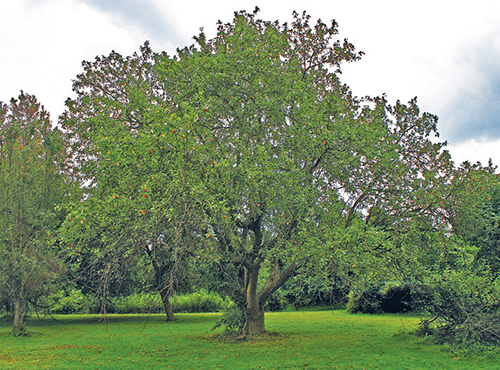
Once there was a tree
And she loved a little boy
And every day the boy would come
And he would gather her leaves
And make them into crowns
And play king of the forest.*
The boy would climb her trunk and swing from her branches. He would hide his toy cars amid her roots and build whole construction sites. His imagination would run wild.
As the boy got a little older, he and his friends built a tree house on the tree’s strong branches. It put some stress on the tree’s limbs, and the boy and his friends had to hammer some nails into her trunk, but the tree loved the boy, and she was glad to have him and his friends under her shade. They were a little rough on her leaves, and often broke off branches for sword fights or for jousting, but hey, boys will be boys.
Years passed, and the tree didn’t see the boy for a long spell. When the boy returned, he was somewhat older. He had changed significantly, but the tree was pretty much the same.
“Hi, boy. Come climb my trunk. Come swing from my branches.”
“I’m not really into climbing anymore,” the boy said. “What I really need is some money, so I can buy myself stuff.”
“Stuff?” the tree asked. “What’s this stuff?”
“Everything,” the boy said. “iPods, and computer games, and nice clothes and a fast car. Baseball gloves, and tasty food, and airline tickets, and sneakers with basketball players’ names on the side.”
“Living here in the woods, I really have no notion of what you’re talking about,” the tree said. “But why don’t you just take my apples and sell them to make money to buy the ‘stuff’ of which you speak?”
“Far out and funky,” the boy said. “Thanks, tree.”
And so the boy collected all of the tree’s apples and sold them for stuff.
Once again the tree did not see the boy for a long time. Quite a few new rings formed on her trunk before she would see him again. When the boy returned, he was significantly older.
“Wo, what happened to you?” the tree asked.
“Age,” the boy said. “It happens to all of us.”
“Don’t worry about it,” the tree said. “I’m just happy to see you. Come and climb on my trunk and swing from my branches.”
“I’m going to take a pass on the climbing,” the boy said. “I’m getting a little old for that.”
“Then can I interest you in a nice, shiny apple?” the tree asked.
“I’m not hungry, but thanks,” the boy said. “Do you know what I could really use?”
“Just name it,” the tree said. “We go back a long way.”
“I have a family now,” the boy said. “I have a lovely wife and two wonderful children. We’re really cramped in the little apartment that we live in. What we really need is a house.”
“So how can I help you with your house?” the tree asked, eager to please his friend.
“In order to build this house, we could really use some wood,” the boy said.
“So you want my apples so you can afford to buy wood?”
“Not exactly. I want your branches to build with, and your trunk would really help, too.”
“Wo, wo, wo. Slow down there, slugger,” the tree said. “If I gave you all that, I would die. I’m afraid you’re asking a bit much.”
“But, but, but you’re the giving tree!” the boy sputtered. “You love me, and you’re supposed to give me what I need!”
“Sure,” the tree said. “Within reason. We live in a time of ecological awareness, my friend. I have to think of myself, and of the environment, too. We trees are an important part of the carbon cycle.”
“But the Torah tells me to take what I need from nature,” the boy said, “and I need wood.”
“Oh really?” the tree asked, “and where does it say that?”
“When God commands Adam to go forth into the world, He says Puru urevu umilu et ha’aretz vekivshuha. Be fruitful and multiply, fill the earth, and subdue it. This pasuk grants man the right to use the Earth’s natural resources for his own purposes.”
“I’d say that’s a broad interpretation of that pasuk,” the tree said. “In fact, I know a pasuk that says quite the opposite.” She was a wise old tree and knew her stuff.
“And what pasuk is that?” the boy asked.
“When Moses is telling the Israelites how to act at a time of war, he says that if Israel is laying siege to a city, they shouldn’t destroy any fruit trees that they don’t need to harm, Ki ha’adam etz hasadeh lavo mipanecha bamatzor. Is the tree of the field a man, that it should enter the siege before you? In other words, the tree is God’s creation, and it did nothing to you, so let it be. I would say that pasuk is more apropos to our present situation.”
“So if that’s true, then what happens now?” the boy asked.
“We will still be friends, and I will always love you,” the tree said. “You just can’t chop me down. You can enjoy my shade and my apples, and you can always sit and rest against my trunk.”
And the boy did. He abandoned his plans to fell his old friend. The boy sat against the tree’s trunk and rested.
And the tree was happy.
*Shel Silverstein, The Giving Tree, Harper Collins, 1999, (35th Anniversary Edition)
By Larry Stiefel










